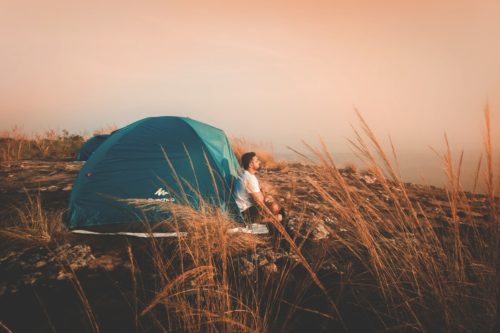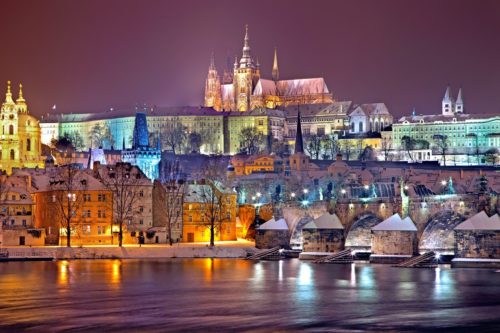Travels Experts Predict 5 Post-Pandemic Trends

C OVID-19 has had widespread effects on the travel sector, altering travelers' general attitudes. Among all the chaos we continue to ask ourselves: “How many of the changes we’ve had to make because of Coronavirus can be reversed after the epidemic, and what will become the new normal?”
Travel experts predict the 5 post-pandemic trends that will have us thinking about the recent global ordeal.
Businesses, particularly those driven by millennials, such as Twitter and Facebook, have embraced remote work quickly. The use of video conferencing has surged, with its effectiveness proving that it can replace physical meetings to a great degree. Despite measures such as "green lanes", today's business travel is severely limited by regulatory limitations among other issues.
Here are the 5 post-pandemic trends predicted by the travel experts that are here to stay!
1. Quality Above Quantity
High-mileage travelers are giving their bucket lists more attention. The Minority Nomad's Erick Prince writes, "COVID-19 has helped me to reassess how and why I travel." "It's allowed me the opportunity to pursue travel ventures out of passion rather than need." Rather than concentrating on paid employment, the blogger, who resides in Thailand, says he'll be launching a self-funded initiative to spotlight Thailand's off-the-beaten-path districts.
Hey, Dip Your Toes In's Eulanda Osagiede is canceling international vacations, describing travel as a luxury that many people take for granted. "Privilege comes in many forms, and identifying our travel-related ones has prompted us to consider traveling more deliberately and less frequently—if the world ever returns to its pre-pandemic state."
2. More Vacation Homes
Almost immediately after Prime Minister Boris Johnson announced that the stay-at-home restriction will be abolished in April, Cottages.com, a vacation rental booking site, reported record-breaking domestic reservations. This summer, both Airbnb and VRBO have had record-breaking reservations.
This corresponds to a predicted increase in domestic travel, which is reasonable given the anxiety and safety worries that many vacationers may have as the epidemic fades. As the globe adjusts to its new normal, here are some of the key advantages of renting holiday homes.
Vacation house rentals keep you and your trip companions socially isolated from other tourists, lowering your chance of illness. Longer stays are ideal for vacation homes, which implies a lower visitor turnover rate than a hotel or motel. There are fewer germs if there are fewer visitors.
3. Frequent Domestic Travel
Plane travel is unlikely to vanish, but it is unquestionably declining. Rather than making many stops, travelers are electing to fly to one location and then go via 'low travel.' Low travel refers to any kind of transportation that takes place on the ground, such as by rail, vehicle, bicycle, or foot.
This is partially due to the fact that holiday reservations for this year are often lengthier than in previous years. Workers have vacation days saved up from 2020 that they didn't want to use, and they're ready to go all out now.
'Lockdown weariness' is also contributing to this. Longer vacations are also a result of our increasing appreciation for what we get when we travel. People are interested in "uncovering a place's culture by spending a month or more isolated working in its rural countryside, learning a new skill, or having a mental or physical reset," according to Black Tomato.
"Travel in 2021 will be more about how you do things and less about what you see," rather than racing around cities attempting to see everything.
4. Digital Detox Vacations To Unplug
"When leisure travel began to recover, a surge of individuals chose holidays in distant and off-the-grid locations because they were inherently favorable to social separation."
"Now, even as immunizations improve and [social] distancing measures become less necessary, I believe off-the-grid travel will remain popular — except this time, it will be due to a lack of internet and mobile coverage." After being so enslaved to our smartphones, computer screens, and streaming services throughout the epidemic, I believe people are yearning for digital detoxes. Remote vacations need a digital detachment."
—Jeff Weinstein, a medical operations supervisor, paramedic, and outdoor safety specialist with Global Rescue.
5. Loss Of Interest In Europe
Expect a newfound fondness for less-crowded locations with great cultural offerings as the infatuation with Europe's capitals fades. "I'd keep an eye on Lyon and Hamburg," said Annie Fitzsimmons, a travel writer based in the United Kingdom, who also sees a resurgence of interest in less crowded European islands. The 24-mile-long island of Sylt in Germany, a Teutonic Nantucket, is one of them.
All in all, in the post-covid world, travel has changed as we know it. These 5 post-pandemic trends predicted by travel experts can only clue us in to what the future looks like for traveling.








